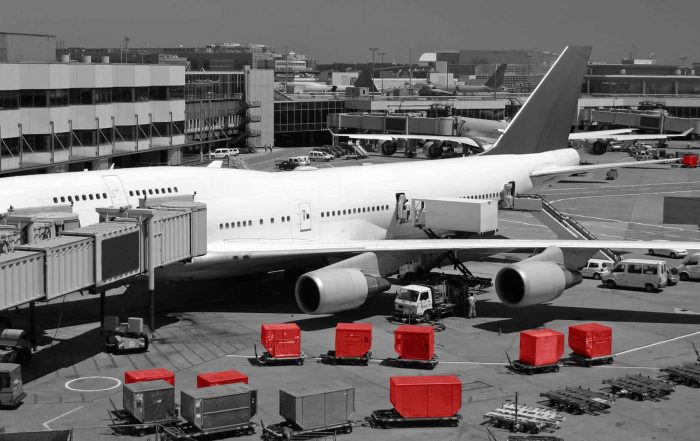In the realm of international shipping and logistics, the transportation of perishable goods presents unique challenges that require specialized knowledge and meticulous planning. As a seasoned expert in this field, I aim to provide you with a comprehensive understanding of the intricacies involved in freight forwarding for perishable goods. This article will explore the critical components of effective logistics management, the role of freight forwarders, and practical solutions to optimize the transportation of perishables across the globe.
Understanding the Challenges of Perishable Cargo
Perishable goods, such as fresh produce, hides & skins products and pharmaceuticals demand stringent conditions during transit to maintain their quality and safety. The primary challenges in shipping perishable goods include temperature control, time sensitivity, and regulatory compliance.
Temperature Control
Maintaining the correct temperature is crucial for preserving the quality of perishable goods. This requires specialised equipment and transportation solutions, such as refrigerated containers (reefers) and temperature-controlled storage facilities. The choice between air freight and ocean freight often hinges on the nature of the goods and the required temperature range.
Time Sensitivity
Perishable goods have a limited shelf life, necessitating swift and efficient transportation. Air freight is typically favored for its speed but naturally comes at a higher cost. Conversely, ocean freight offers a more economical option but requires precise scheduling to mitigate delays that could compromise the cargo’s integrity.
Regulatory Compliance
The transportation of perishable goods is subject to stringent regulations to ensure consumer safety. Compliance with international standards, such as the International Air Transport Association’s (IATA) Perishable Cargo Regulations, is paramount. Additionally, import and export regulations, including documentation and customs clearance, must be meticulously managed.
The Role of Freight Forwarders for Perishable Goods
Freight forwarders play a pivotal role in the successful transportation of perishable goods by coordinating logistics, managing documentation, and ensuring compliance with regulations. These experts serve as intermediaries between shippers and carriers, leveraging their knowledge and networks to optimise the supply chain.
Coordinating Logistics
Freight forwarders are responsible for selecting the most appropriate transportation mode, routes, and carriers to ensure timely and safe delivery. They assess factors such as cargo volume, destination, and temperature requirements to craft a tailored logistics plan.
Managing Documentation
The documentation process for shipping perishable goods can be complex, involving bills of lading, certificates of origin, and health certificates. Freight forwarders streamline this process by ensuring all necessary documentation is accurately completed and submitted in a timely manner.
Ensuring Compliance
Freight forwarders stay abreast of the latest regulations and standards affecting the transportation of perishable goods. They advise shippers on compliance requirements, reducing the risk of delays or penalties that could arise from non-compliance.
Optimising Perishable Goods Transportation
To maximize efficiency and minimise risks in the transportation of perishable goods, businesses should consider the following strategies:
Leverage Technology
Advancements in technology have revolutionised the logistics industry, providing tools to enhance visibility and control over shipments. Temperature monitoring devices, GPS tracking, and real-time data analytics enable shippers and freight forwarders to monitor conditions and make informed decisions during transit.
Collaborate with Trusted Partners
Building strong relationships with reliable carriers and freight forwarders is essential for successful perishable goods transportation. Look for partners with a proven track record in handling perishable cargo and a commitment to maintaining high-quality service standards. A great place to start would be to get in touch with K&L freight who have been transporting perishables around the world for over 35 years.
Implement Contingency Plans
Unexpected disruptions, such as weather events or equipment failures, can jeopardize the timely delivery of perishable goods. Developing contingency plans, including alternative routes and backup transportation options, can mitigate the impact of unforeseen challenges.
Conduct Regular Training
Ensuring that all stakeholders involved in the transportation of perishable goods are adequately trained is critical for maintaining quality and compliance. Regular training sessions should cover topics such as temperature control, handling procedures, and regulatory updates.
Case Study: Successful Perishable Goods Transportation
A leading international freight forwarder, K&L Freight, recently undertook the challenge of transporting a large consignment of hides and skins from the UK to China. This case study illustrates the successful application of best practices in freight forwarding for perishable goods.
Challenge
The client required the shipment to arrive in the China reliably and with spoiling the goods, maintaining a consistent temperature of -2°C throughout the journey. Additionally, the shipment had to comply with both UK and Chinese import regulations, necessitating meticulous documentation and coordination.
Solution
The K&L Freight coordinated a seamless logistics plan involving both sea and road transportation. With temperature-controlled trucks used for the beginning and final leg of the journey to the distribution centre.
Advanced temperature monitoring devices were employed to ensure real-time visibility and compliance with the required conditions. K&L Freight managed all documentation, including health certificates and customs declarations, ensuring a smooth clearance process upon arrival in the China.
Outcome
The shipment arrived within the specified timeframe, with the goods maintaining its freshness and quality. The client’s satisfaction was further enhanced by the freight forwarder’s proactive communication and ability to adapt to any potential disruptions during transit.
Conclusion
Freight forwarding for perishable goods is a complex and dynamic process that demands expertise, precision, and adaptability. By understanding the unique challenges involved and leveraging the capabilities of experienced freight forwarders, businesses can optimise their supply chains and ensure the safe delivery of perishable cargo.
In an ever-evolving global market, the ability to navigate the intricacies of international shipping and logistics is invaluable. By implementing the strategies outlined in this article, businesses can enhance their competitiveness and secure a foothold in the lucrative perishable goods sector. With 35 years in business, K&L Freight can provide you with up to date guidance on the industry and cost – effective solutions for your international freight needs.
RELATED POSTS
AOG Logistics: How We Move Aircraft Parts Fast
When an aircraft is AOG (Aircraft on Ground), every minute matters. Maintenance teams need the right part in the right[...]
Repatriation Logistics: Getting it Right Every Time
When a death occurs overseas, families need clear, compassionate support to arrange repatriation—the safe return of their loved one’s remains[...]


